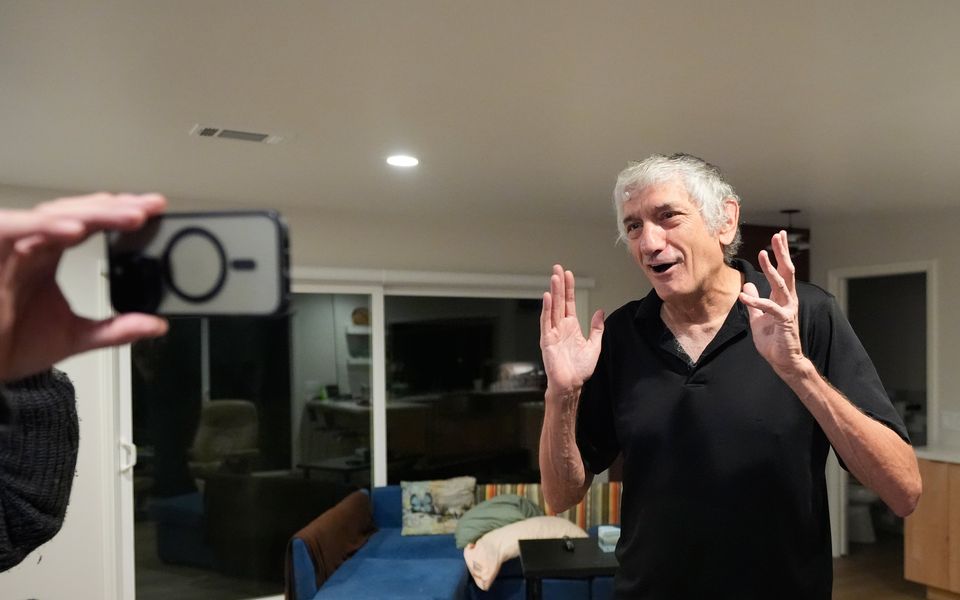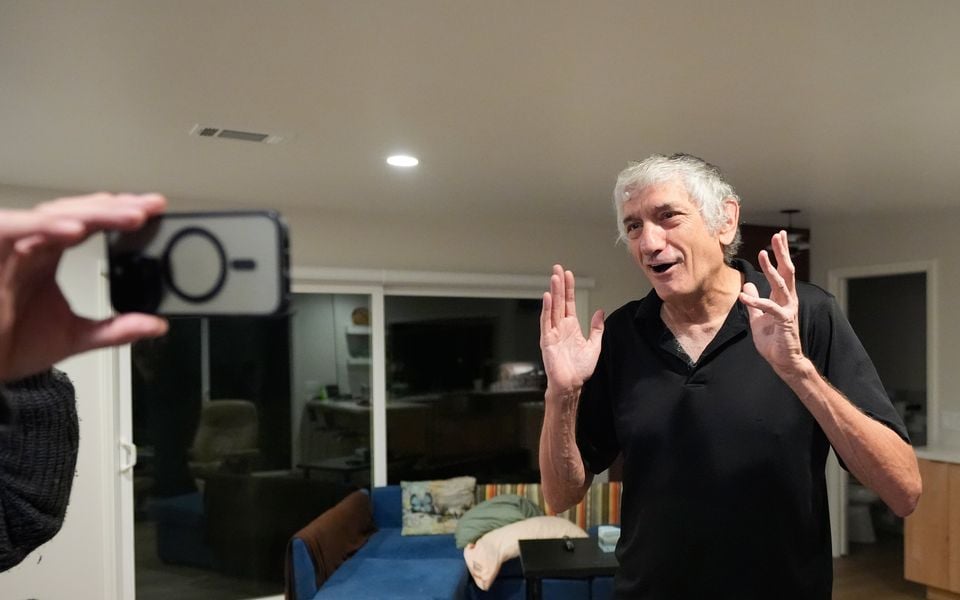
John Martinis conducts an interview in his living room after winning the Nobel Prize in Physics for his work on quantum tunneling on Tuesday, in Santa Barbara, California. [AP]
“I saw all these emails from Greece,” says John Martinis, who won the 2025 Nobel Prize in Physics this week. “And I thought, did I do something wrong?” he adds with a quip.
That was his first reaction when Greek journalists started contacting him, assuming he had Greek roots. “It turns out that I’m not of Greek-American origin, but Croatian,” he says. “Is this still a noteworthy interview?”
The confusion began after The Greek Herald, an Australian diaspora website, described Martinis as “Greek-American,” likely because of the Greek-sounding ending of his surname. The claim was later picked up by several Greek media outlets, including Kathimerini. “Greek-American John Martinis to lead Australia’s quantum computer future,” the site wrote in 2020.
No other source mentioned Greek ancestry, but the idea of another “Greek” Nobel laureate was enough for the story to spread quickly – even if the truth was more complicated.
Still, Martinis doesn’t completely rule out a distant connection. “The fact that my father’s name comes from an island kind of in the middle of the Adriatic – and given that people have moved up and down that coast throughout history – leaves open the possibility (that we might have a Greek root),” he says from his home in Santa Barbara. “But we’re talking about 400 years back.”
He adds: “I’m glad that people are proud of their culture, and even if they emigrate to the United States, they’re still part of that culture. That’s really nice. I like that.”
Martinis, who shared the 2025 Nobel Prize in Physics with John Clarke and Michel Devoret for their work on macroscopic tunneling and energy quantization in electrical circuits, says he never chased recognition. “You do science for the joy of discovery – giving a talk, talking about new data, having new, exciting data,” he says. “That’s your reward. I think it’s a mistake to think you need this prize for doing it. But it’s very nice, to tell you the truth. I very much appreciate it.”
A pioneer in quantum computing, Martinis believes researchers are “very close” to building a practical quantum computer. “Computers have become better and more powerful,” he says. “If we have a new type of computer that’s very powerful, we’ll have some initial applications – and then who knows what will happen. The possibilities are unlimited.”
He expects early uses to involve “simulations of atoms and molecules– maybe new materials, new transistor designs – things that could revolutionize medicine and manufacturing.”
Martinis also hopes such advances will help society address material shortages. “Right now, we can build products, but many require exotic materials that just can’t scale,” he explains. “An example is batteries with cobalt. There’s not enough cobalt to electrify the world. But if we use more common, cheaper materials – and design them right – that would really benefit society.”
On concerns that quantum computers could break existing encryption systems, he’s unfazed. “In cryptography, there’s a long history of people inventing codes, and they have a certain lifetime before you can break them,” he says. “Quantum computers breaking existing codes is just another part of that story. People are already working on ways to improve cryptography so that it’s not a problem.”
Having worked in academia and industry – from the University of California, Santa Barbara, to Google’s Quantum AI Lab – Martinis says he’s now happiest running his own small company. “I just didn’t fit into Google anymore,” he admits. “By forming my own company and working with a few people, we just rethought everything. We came up with a new business plan that I think is much more likely to work. It’s the right way to do it. As a scientist, I can think more broadly about what we have to do, without worrying about the politics of a big company.”

